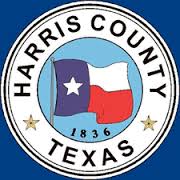A judge rejected a second attempt by a bail bonding business to put an end to a Harris County rule requiring defendants accused of violent offenses to pay a minimum 10 percent fee to secure their release from jail, officials said Monday.
55th District Court Judge Latosha Payne ruled Aug. 9 against a temporary injunction stemmed from civil litigation lodged in April against the Harris County Bail Bond Board that attempted to prevent the premium policy from taking effect. A judge blocked the initial attempt as well.
All About Bail Bonds owner and plaintiff Sunya Claiborne argued in the lawsuit that the policy jeopardizes her business — calling the minimum fee requirement “classic price fixing and a per se antitrust violation.” The lawyer for the plaintiff, Kevin Pennell, said he plans this week to appeal the judge’s order.
Without the minimum fee, Claiborne planned to “offer competitive pricing of less than 10% of the face amount of the bond to consumers who desire to purchase a bail bond for themselves, or their loved ones charged with a designated offense and qualify for reduced payment terms,” according to court documents.
The Harris County Attorney’s Office — whose attorneys were unaware of the judge’s ruling until the order was uploaded Monday to the Harris County District Clerk’s Office — defended the Bail Bond Board against the lawsuit. The policy was prompted by a Commissioners Court resolution urging the board members to adopt rules regulating the minimum fee that a bondsman must collect to secure a defendant’s release on violent charges.
“People accused of violent crimes should not get any discounts while they await trial,” Precinct 2 Commissioner Adrian Garcia, who proposed the fee minimum to county commissioners, said in a statement. “This affects no one accused of the most minor, nonviolent offenses who would be stuck in jail because they aren’t able to pay.”
See here and here for some background. The original hearing was in the 269th Civil Court, and the second hearing was to have been on May 6. I don’t know why the change of court and I don’t know if the second hearing was delayed or if it just took that long for a ruling, but here we are. I thought the “price fixing” argument was weak and as such I’m not surprised at this outcome. I don’t see the appeals being successful, but maybe there’s some technical point of law on which they can get a rehearing. Given the speed of the appellate process, expect it to be a long time before the next update.


A lawyer actually argued that a government rule is price fixing and an antitrust violation? Wow. Sounds like someone needs some remedial law training. Here’s a tip, folks, when the government does it, it’s not price fixing or antitrust. Those apply to private businesses conspiring to do something.
TRO applications are heard by the ancillary judge. The subsequent temp injunction by the judge to whom the case is randomly assigned. District judges rotate in the ancillary role. That is why there are typically two different judges involved when immediate injunctive relief is requested in Harris County civil district court cases.
TROs last only 14 days with possible extension. If denied you can still get your temporary injunction hearing before the judge presiding over the court to which the case was assigned. See local rules for details. Posted online.